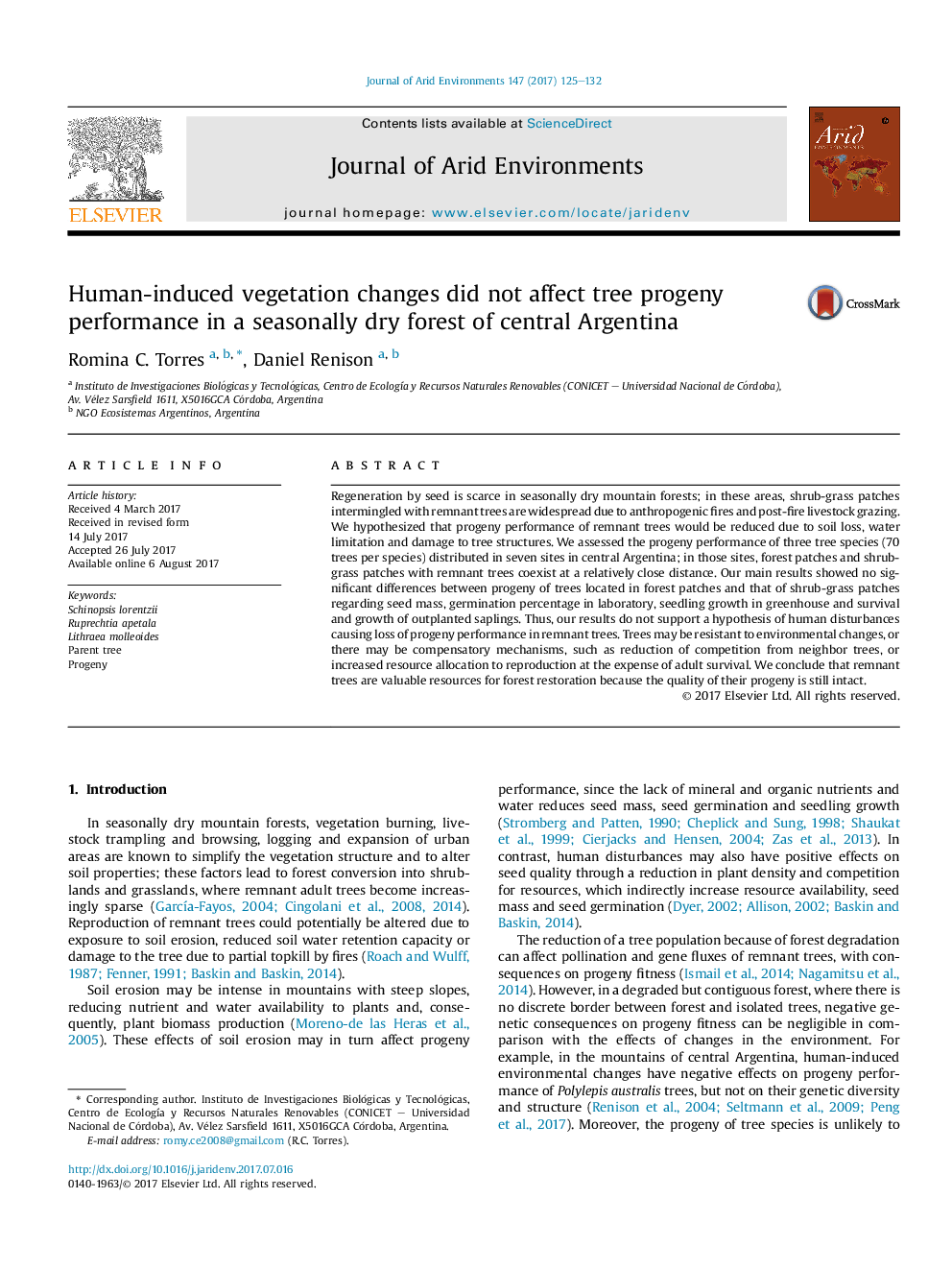| کد مقاله | کد نشریه | سال انتشار | مقاله انگلیسی | نسخه تمام متن |
|---|---|---|---|---|
| 5744269 | 1618212 | 2017 | 8 صفحه PDF | دانلود رایگان |
- Progeny traits of trees located in forest and shrub-grass patches did not differ.
- Germination, seedling survival and growth varied among species.
- Most of the progeny traits did not differ among sites of seed collection.
Regeneration by seed is scarce in seasonally dry mountain forests; in these areas, shrub-grass patches intermingled with remnant trees are widespread due to anthropogenic fires and post-fire livestock grazing. We hypothesized that progeny performance of remnant trees would be reduced due to soil loss, water limitation and damage to tree structures. We assessed the progeny performance of three tree species (70 trees per species) distributed in seven sites in central Argentina; in those sites, forest patches and shrub-grass patches with remnant trees coexist at a relatively close distance. Our main results showed no significant differences between progeny of trees located in forest patches and that of shrub-grass patches regarding seed mass, germination percentage in laboratory, seedling growth in greenhouse and survival and growth of outplanted saplings. Thus, our results do not support a hypothesis of human disturbances causing loss of progeny performance in remnant trees. Trees may be resistant to environmental changes, or there may be compensatory mechanisms, such as reduction of competition from neighbor trees, or increased resource allocation to reproduction at the expense of adult survival. We conclude that remnant trees are valuable resources for forest restoration because the quality of their progeny is still intact.
Journal: Journal of Arid Environments - Volume 147, December 2017, Pages 125-132
